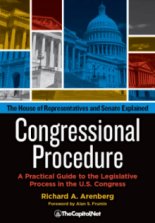Basic Federal Budgeting Concepts and Terminology
The federal budget process typically involves a rather complex series of legislative and executive procedures and various financial transactions. photo credit: Evelyn Proimos The term Revenue refers to income that is received by the federal government. (The executive branch also uses receipts as a term for revenue.) Revenue may be raised from a variety of … Read more



